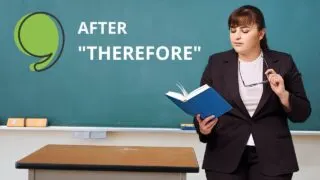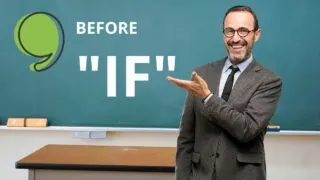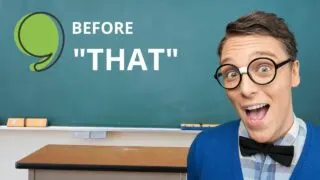Just like your dog’s collar, guitar pick, and cigarette filter, every punctuation mark serves a purpose in the world of written language. And, notwithstanding how insignificant a word may superficially look like, it surely plays a significant role in forming a sentence as well. Today, we’ll look into punctuating coordinating conjunctions in English, namely, for, …
Comma usage
Adverbs are words that tell you more about a verb. In other words, they tell you something about how an action was performed. Some adverbs tell you about time, including words that indicate the order that something happened in. These are words like “finally,” “first” and “second,” and they are called sequence adverbs. “Ultimately” is …
If there’s anything worse than spelling, it should be the punctuation system. And, among all the punctuation marks, the comma seems to be the most notorious offender other than the semicolon and the colon. To make matters even worse in our discussion today, let’s mix the comma rules with another set of perplexing punctuation marks, …
In order to know whether we’ve written an effective text, we can check its logical coherence, readability, and rhythm. But, how can we achieve this? Taking a closer look at some of the subtlest grammatical elements such as punctuation marks and transition words will make a difference. So, we’ve customized a post covering these grammatical …
Knowing where commas go in our sentences needs a bit of legwork. Just like every other skill that we try to learn. Being able to mix the appropriate transition devices with proper punctuation enriches writing to a whole new level as well. Thanks for dropping by! Let’s now take a little journey towards understanding these …
When is a comma necessary before “if?” A comma before “if” is necessary after an introductory remark at the beginning of a sentence. We also need a comma when “if” is used after a mid-sentence transition phrase, such as “for example” or “that is.” We also need to place a comma before “if” when it …
A teacher once asked, “What else could be more perplexing than the punctuation system?” One student answers, “Punctuation decision before words, which belong to multiple parts of speech.” The straight-A student cringed and thought, “You should’ve used that. Not which.” No matter which kind of student you used to be, or you still are, this …
What about the punctuation of the temporal expression “yesterday”? Do I need a comma after it or not? Well, not so fast, please! The answer to this question is probably more difficult than you would expect. That said, the short answer to the question is simply: Sometimes, it is followed by a comma, and sometimes, …
Previous studies have found that the negation of ideas is a more complex process than affirmation. With that being said, it may lead to false retention of information in worst-case scenarios. When information is falsely associated with, counter-productive effects may occur, especially in more serious cases such as legally-related ones. In the crowded community of …









